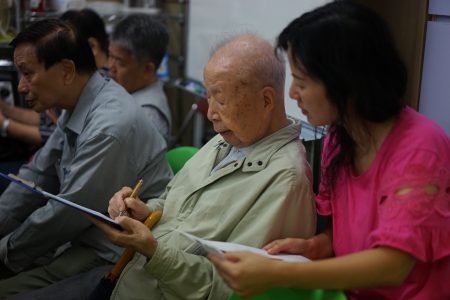JCAFC: Neighbourhood Care Scheme for Elderly Carers



The Caritas Mok Cheung Sui Kun Community Centre organised the Age Friendly City programme to improve age-friendliness in social participation within the district with the support from the Jockey Club Age-friendly City Project (JCAFC). With the aim of providing support to solitary older adults and older couples, this programme included two parts:
This programme began with a series of home visits and reached 1,372 households to identify 41 households with 86 solitary older adults and older couples. The selected 86 individuals identified were followed up with a health assessment, home visits and service referral by social workers in order to bridge community resources to them.
Moreover, 41 residents were recruited as voluntary “neighbourhood care ambassadors” and trained with older care knowledge and skills to provide regular home visits. The volunteers aimed to establish good relationships with older households and encouraged them to participate in the programmes organised by the community centres to foster social participation and inclusion.
This programme also strengthened the support to caregivers with training workshops on mental wellbeing and caregiving skills. A mutual help group was set up afterwards. These training workshops and support groups helped to build internal capacity and provide once isolated citizens with a platform for information exchange, relaxation and mutual support.
Finally, 4,000 copies of the programme booklets introducing the concept of AFC, older caregiving knowledge, and community resources were printed and distributed in the district. Followed by a closing ceremony and a sharing session to increase local communities’ and stakeholders’ awareness on the issue.
Main target group: Vulnerable older people (e.g. at risk or victims of abuse, living alone, poor etc.)
Other target group(s): The general public
Sector(s): Health, Information and communication
Other sector(s): N/A
Desired outcome for older people:
Meet their basic needs